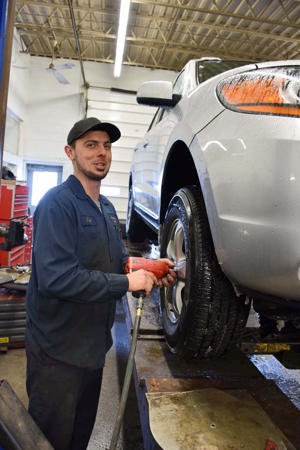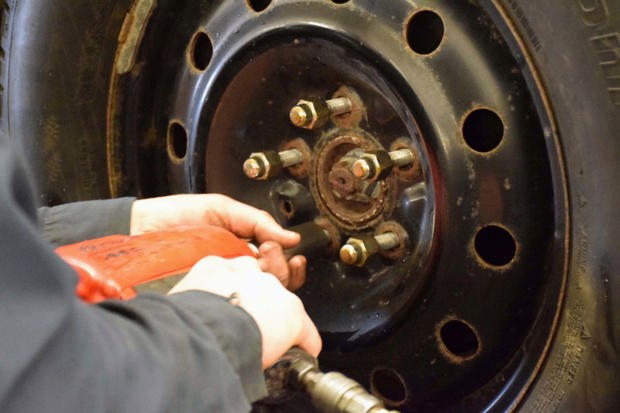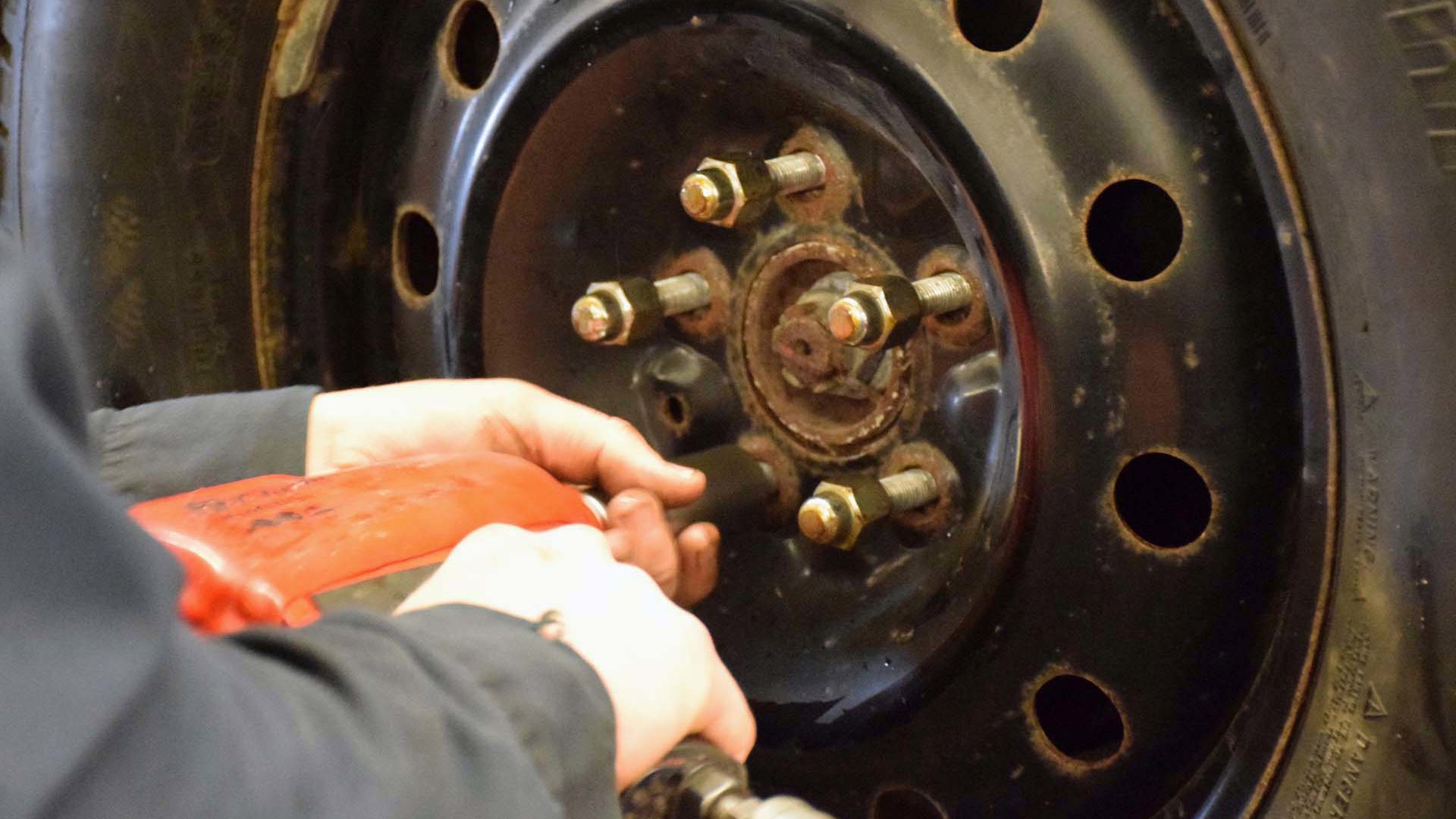Welcome to Goof of the Month! Every month, we ask for stories from our network of mechanic pals that highlight the need to understand one’s vehicle, how to maintain it, and how it works.
This special edition of our regular column started with an email from a reader who had winter tires and wheels installed at a tire shop, and began hearing a nasty clunking sound when driving, a few days later. She went to her mechanic fearing the worst, and was shocked to learn that her nuts were loose. Turns out, the shop that installed her winter tires and wheels hadn’t advised her that she should have her nuts retightened after about 100 kilometres.
This wasn’t a problem with the installation of the wheels, but rather, a problem with communication. Likely in a flurry of trying to get as many winter wheels onto as many client vehicles as possible, the person at the tire shop cash register neglected to tell this reader that she needed to come back for a re-torque, or retightening, after a hundred clicks or so. Or maybe they did, and the reader forgot about it.

In any case, this month, we’ll look at a few stories from two of our mechanic correspondents, which all cover the same uncomfortable topic: loose nuts. After all, November is loose nut season, thanks to the masses switching to winter wheels and tires, and many failing to have their nuts tightened again afterwards.
The Complaint
The complaints are frequent and similar this time of year. Some of the common ones are “my car is making a noise”, “something is ticking”, “it’s clunking really bad”, and so on. Some drivers even attempt self-diagnosis, figuring they’ve got a bad CV axle, when really, it’s just their nuts.
The common thread? The noise is typically rhythmic and speed sensitive, sounds like metal on metal, and begins not long after the changeover to winter tires.
The Mechanic
Goof of the Month contributors Paul Kennaley and Nick Labrie hear a lot of complaints, and when the cold weather moves in, many of these tend to centre around the telltale noises mentioned above.
Kennaley comments: “This time of year, the complaints become rampant. We’ll see a handful of customers each week come in complaining of the same sort of noises. I see a lot of nuts in the course of my day, and I know that loose nuts are an uncomfortable topic. Sometimes, customers are shy or embarrassed about coming in and talking about their nuts. But it’s a safety thing. And loose nuts are an easy fix.”
Labrie adds, “This time of year, the first thing I ask a customer complaining of noises like these is whether they’ve recently had their tires changed. Usually that’s the case, and almost always that’s the cause of the noises. I had a lady in just the other day who was pretty sure her car was about to lose a wheel. She was really surprised when I told her it was actually just a little problem with her nuts. I spent two minutes on her nuts, and sent her on her way.”
The Diagnosis

If you’re suffering from loose nuts this time of year, there are numerous possible symptoms, but one likely cause: you had your winter wheels installed, and didn’t go back in after a few days to have your nuts retightened.
Simply, nuts like to be left alone once they’re securely fastened and holding a wheel to your ride. When a technician fiddles with your nuts, he disturbs them, and after about 100 kilometres, the nuts ‘settle in’ once again.
Thing is, as your nuts get comfortable, they can move, shift about, and become loose after several hot and cold cycles, or being subjected to movement or impacts as you travel over rough winter roads. Most of this settling occurs by 100 kilometres or so. Translation? After about 100 clicks with your new wheels on, you’ll want to adjust your nuts. A simple retightening ensures your nuts are in the proper position, maximizing safety and ensuring you don’t lose one.
The Outcome:

This is such an easy fix! Tightening the nuts is all that’s needed. It’s a painless, fast procedure that’s fun and free.
Labrie explains, “I have customers who call me ahead of time needing me to adjust their nuts. They can pull up in front of the shop and honk, and I’ll go outside with a torque-wrench and do the re-tighten. They don’t even need to pull into the bay, or get out of their car. It’s literally a two-minute job. I have other customers who prefer to handle their own nuts, and they have their own torque wrench, so they can adjust their nuts in the comfort of their own driveway. Some are good Samaritans, and even offer to adjust their neighbours’ nuts, too!”
Lesson Learned
Some tire shops make customers sign a form promising to have their nuts retightened after a few kilometres. Others hang a sign behind the cash, or tell customers as they leave. Thing is, many customers simply forget, or choose to ignore this bit of maintenance, perhaps because they don’t understand why it’s necessary.
It’s not just a good idea to adjust your nuts, but should be considered virtually mandatory, even if many drivers don’t seem to see it that way. Left untightened, loose nuts can cause noises, vibrations, damage to brakes and axles, and even result in a wheel leaving the car, causing an accident.

Kennaley adds, “Everybody’s nuts are different. Some shift around, move or loosen, others don’t. It depends on several factors, including temperature changes, what the wheels are made of, and how tightly the nuts were installed. In severe cases, loose nuts could even cause an accident, or go flying into someone’s windshield. Nobody wants to lose a nut.”
Sound like you need to get your nuts adjusted? Pop by your local tire shop or mechanic and tell the fella at the front desk your nuts need some attention. You’ll be on your way again in no time.

